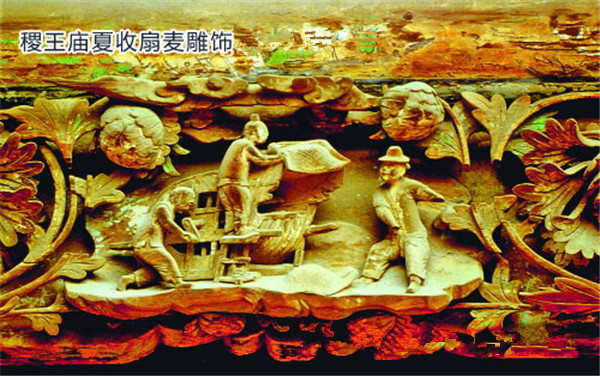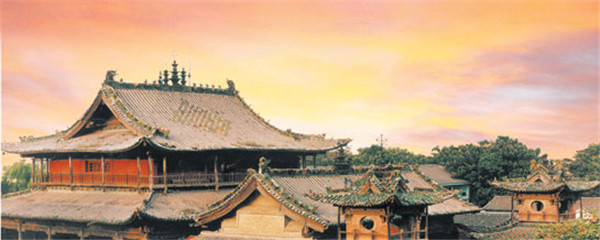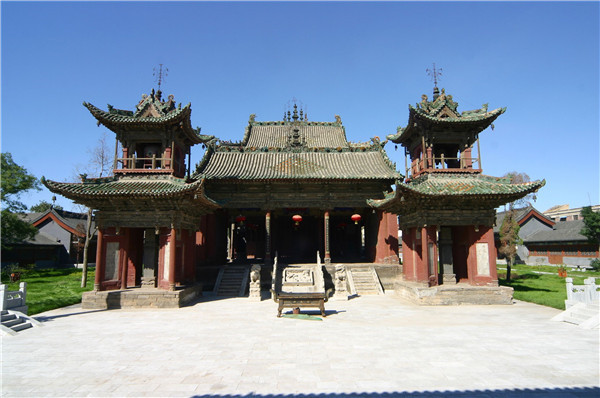
Farming holds the key to people's clothing, food, and human civilization. Farming civilization represents one of the earliest civilizations and civilizations that influenced people most in the world. It originated from Jishan County, Yuncheng. In ancient times, the land of Shanxi province at that time was covered with vast forests, in which there were various kinds of plants grew thickly, wild animals roamed about. Our ancestors lived a primitive life of gathering and hunting in a prolonged period. It was such a process that ensured the farming culture of Hedong can be nurtured and sprouted. From hunting, ancestors gradually learned to recognize and domesticate animals; from collecting, they learned to recognize fruits and seeds over the years. Especially in their long-term practice, people noticed that the seeds of plants fluttered down with the wind and grew new plants on the ground. Learned that, they planted tubers and seeds of the plants around their living place, starting the earliest farming in a slash-and-burn way.

So far, more than 400 stone relics have been found in Yuncheng. The unearthed tools for farming and felling include stone axe, stone adze, stone hoe, stone shovel, etc.; tools for grain processing include milestone, stone roller, stone pestle, etc.; tools for spinning and weaving include stone and pottery spinning wheels and bone needles, bone awl, etc.; tools for hunting and fishing include stone and bone arrowheads, pellet, net, etc.; tools for digging is represented by wood plow; harvesting tools include half-moon-shaped stone knives, stone sickles, bone shovels, clam sickles, etc.; In addition, there are a large number of polished and sharp stone knives, pottery knives, large stone shovels, stone spades, plate-liked things and sharp tools for felling, etc. The crops unearthed can be represented by maize, millet, sorghum, soybean, and linen. Diversified species, multiple uses and meticulous classification fully prove that Chinese ancestors worked on tillage and created farming culture since more than 20,000 years ago on this time-honored and marvelous land. The one who contributed most to the development of agriculture is Hou Ji.
Hou Ji, whose name was Qi, showed great interest in crops and tillage since young. Growing up, he indulged in the research of growth patterns and regularity, sowing in spring and harvesting in autumn. People intimated his way to do farm work. Heard from people, Emperor Yao assigned him as Houji. After taking office, Houji guided people to adapt to the season and sow seeds, taught people to grow. Devoting his whole life, he promoted the development of primitive agriculture. Up to now, in Jishan County, Yuncheng, there are still many legends about Houji passing down among people. Jiwang mountain, Jishan County, Jiwang temple, Jiyi Temple, etc. in Yuncheng City are built by later generations in memory of the achievements of his remarkable accomplishments and moral integrity. In particular, frescoes in Jiyi Temple demonstrated how Houji taught people to cultivate and develop primitive agriculture.

Farm work and tools making promoted ancient humans to walk upright, divide the work of hands and feet activated human’s mind-thinking and talent of understanding, accelerated the development of the human brain and human evolution. Up to now, maize, millet, sorghum, soybean, and linen are still important crops in Yuncheng. The story that Houji taught the people to grow crops was the earliest record that how the Chines people planted grains. Cattle Ploughing, the relic excavated in Zaoyuan, Pinglu County, Yuncheng provides a group of vivid, and reliable basis proving the further development of agricultural culture in China.

